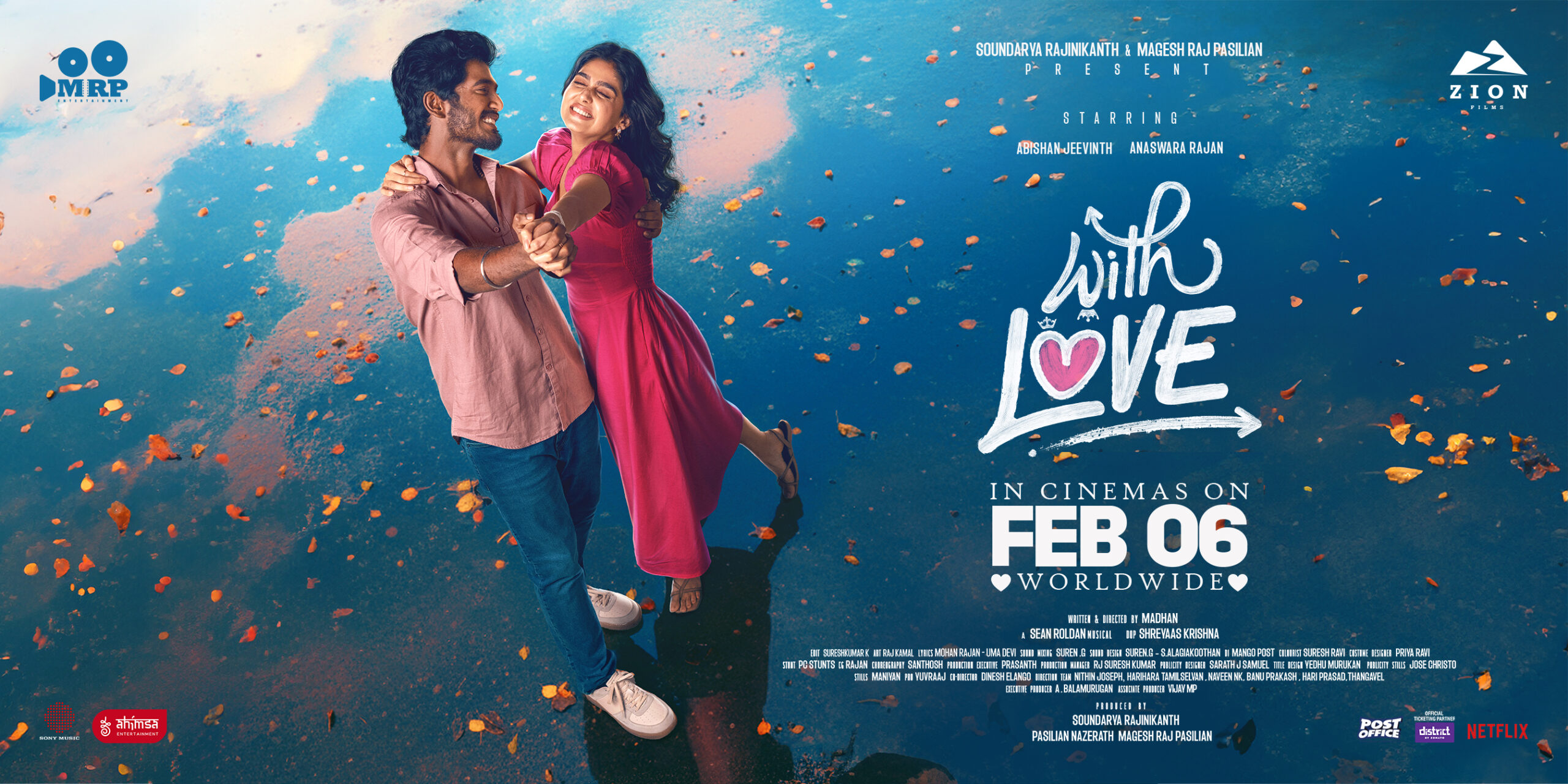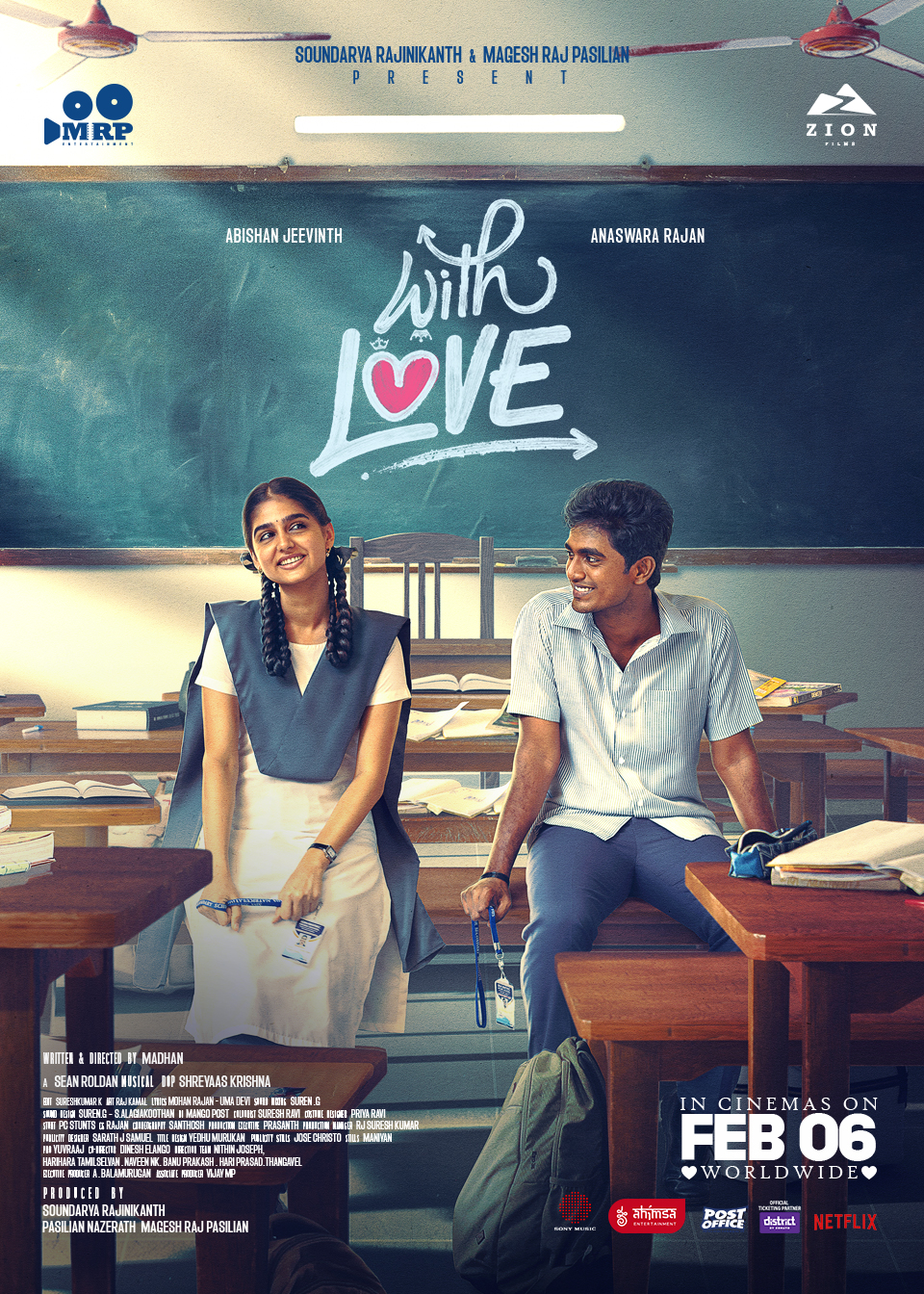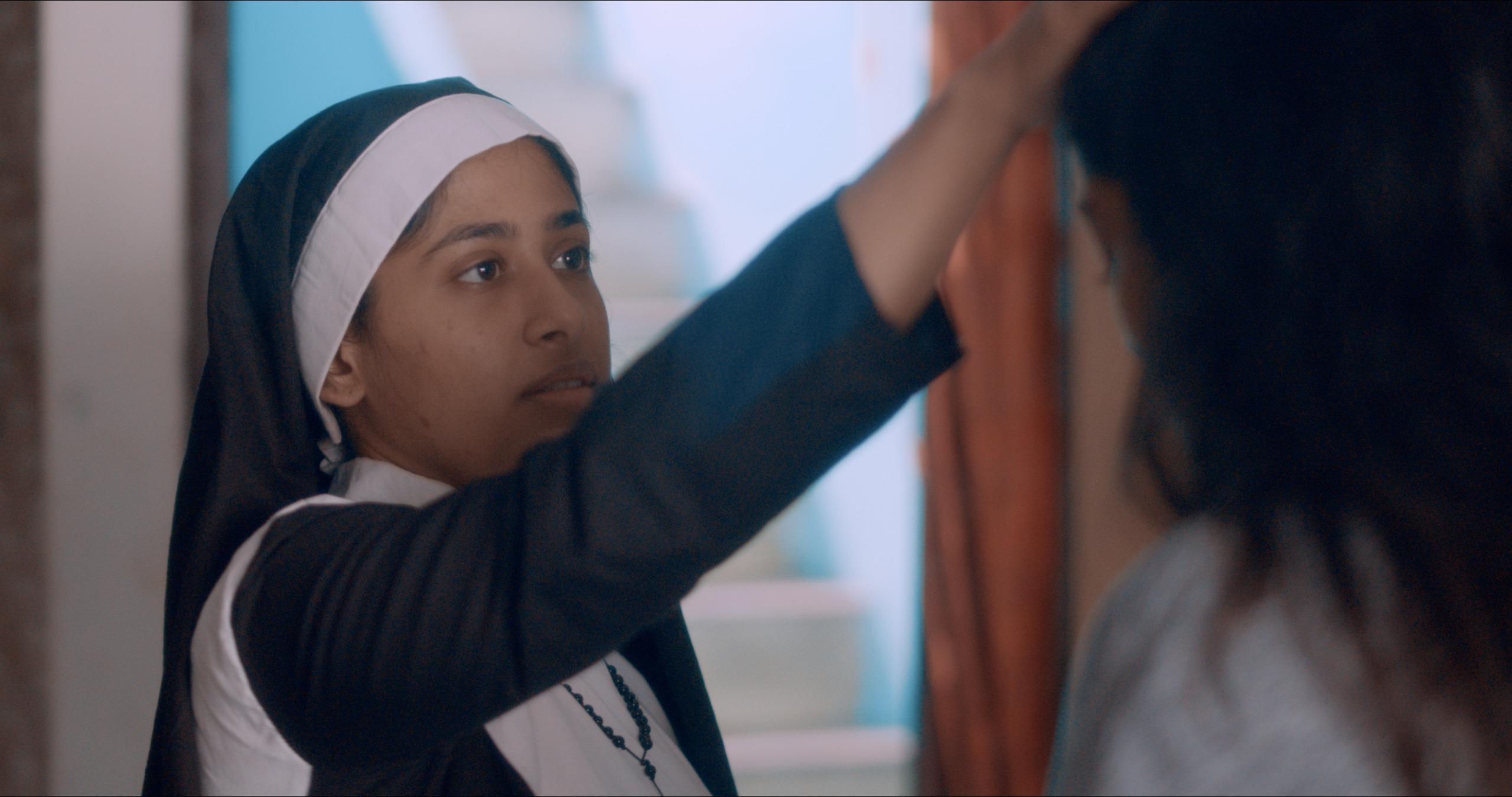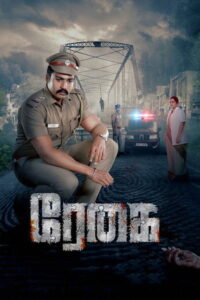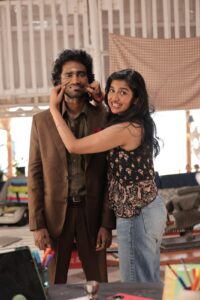Maria, written and directed by Hari K Sudhan and produced by Hari K Harasudhan, is a bold attempt to narrate a story rooted in faith, desire, and rebellion. With music composed by Aravind Gopalakrishnan and Bharath Sudharshan, the film explores a controversial subject, intertwining Christianity, convent life, and the philosophy of Satanism.
The story centers around Maria, played by Sai Shri Prabhakaran, a young nun who leaves her convent and visits her cousin Agnes. From the very beginning, Maria is portrayed as someone who has sacrificed worldly pleasures for God, she doesn’t use a mobile phone, avoids tasty food, and has lived in simplicity without desires for over five years. Agnes, on the other hand, though a Christian, lives a modern lifestyle and stays with her boyfriend Vishnu.
While staying with Agnes, Maria struggles with her convent discipline and personal urges. Watching Agnes and Vishnu enjoy their life slowly pulls Maria out of her strict religious boundaries. What starts as curiosity and hesitation soon turns into a dangerous path of desire. This forms the core conflict of the film, how Maria, a nun, begins to question her faith and choices.
The second half introduces Anton Lavey, played by Pavel Navageethan, who symbolizes rebellion against God. His entry shifts the narration into a different dimension, bringing themes of Satanism and philosophical debates about liberty and free will. Maria’s transformation becomes more intense as she begins to embrace desires and rejects her convent values. The narration touches on rituals associated with Satanism, and even shows Maria moving towards a new ideology that contradicts her convent upbringing.
The director attempts to show how a person torn between faith and human desire may fall into temptation. However, some parts of the narration feel problematic, especially in the way Maria’s character is portrayed. The justification for her physical relationship with Vishnu feels unconvincing and might leave audiences uncomfortable. Instead of balancing the message between good and evil, the film seems to give more space to lust and rebellion, weakening its moral clarity.
SaiShri Prabhakaran delivers a committed performance as Maria. She carries the innocence, confusion, and inner conflict of her character convincingly. Pavel Navageethan, as Anton Lavey, brings intensity and makes a strong impact despite appearing only in the second half. Vignesh Ravi, as Vishnu, performs well in portraying a man caught between desire and morality, while Sidhu Kumaresan as Agnes shows natural ease in her role. Supporting actors like Balaji Velan, Abinaya, and Sudha Pushpa contribute decently to the narration.
On the technical front, the direction by Hari K Sudhan is ambitious but uneven. The first half establishes the nun’s discipline and inner struggles quite well, but the second half drifts into philosophical preaching, which may not connect with everyone. The music by Aravind Gopalakrishnan and Bharath Sudharshan adds depth to emotional and ritualistic scenes. The production values are fair for the subject attempted, and the narration control by Pradhyuman is adequate.
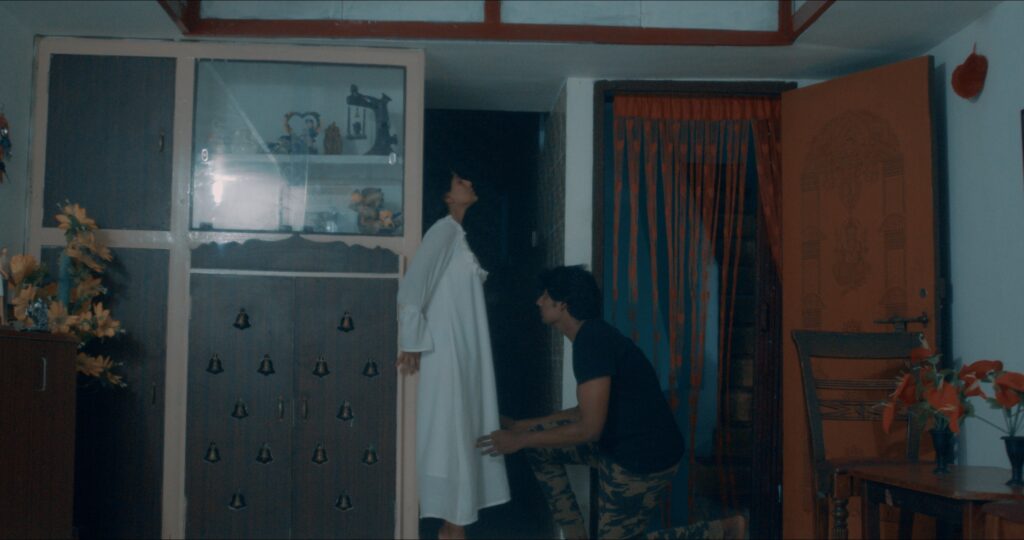
Overall, Maria is a daring attempt that explores sensitive themes of faith, temptation, and rebellion. While the performances are strong, especially by SaiShri Prabhakaran and Pavel Navageethan, the writing struggles to balance its message. The film risks alienating viewers by focusing too heavily on lust rather than exploring a balanced spiritual conflict. Still, for audiences who appreciate bold storytelling and philosophical debates in cinema, Maria offers a different kind of experience.
